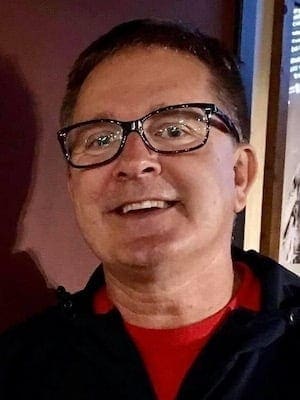Every morning, Leo’s smile brightens the cafeteria at my elementary school. He hobbles in, holding his teacher’s hand. His eyes squint at the bright lights. He squirms at loud noises. And always, he smiles.
“Good morning, Leo,” I say as I rub his cheek and look into his eyes. He looks back into my eyes for a split second, then gazes off into his own world. That one-second look is his way to say good morning.
Leo is a nonverbal first-grader. He is a student in our K-2 trainable mentally disabled class. He comes to us with Down syndrome, autism and wonder.
Leo has the smile of his mother. She is a petite, soft-spoken woman from Mexico.
During the Individual Educational Plan meetings, she listens intently as Leo’s teacher speaks of his progress and goals through a translator. Through the translator, she shares the story of 7-year-old Leo and his two younger sisters at home.
I admire her courage and grace, raising three children with one on the autism spectrum in a new culture where you don’t know the language.
“We’re working on helping Leo recognize numbers, 1 through 10, and the letters in his name,” Leo’s classroom teacher explained. “Next year, he’ll have access to an iPad with special apps just for him all day at school to work on those goals. I think he’ll accomplish them.”
“Muchas gracias for your work and care for Leo,” Mom says. “I can see that he is learning.”
Leo, his mom and his teachers are my heroes.
I’ve been thinking of all the uses of the word hero. We will hear “hero” many times this summer as the Games of the XXX Olympiad open on July 27 in London. We will celebrate athletes who are faster, stronger and who can jump higher than all the others. We will call them heroes.
This year we also celebrate the 50th anniversary of the Special Olympics started by Eunice Kennedy Shriver for young people with mental disabilities.
Kennedy was inspired by her sister, Rosemary. Eunice grew up swimming, sailing, skiing and playing football with her sister. But she also knew that the community often ignored and neglected people like her sister.
Camp Shriver began as a way for children like Rosemary to explore their skills. In 1968, Camp Shriver became the Chicago Special Olympics. The Special Olympics now serves more than 3.7 million people in 170 countries.
The motto of the Special Olympics is, “Let me win, but if I cannot win, let me be brave in the attempt.” Leo, his mom and his teachers are certainly brave in their attempts.
We hosted a Special Olympics in my city in the spring. I helped take care of Leo on that day. He was too young to participate in the official games.
As he sat beside me and held my hand, I thought of the events that make Leo a champion each day. I recalled the way his fingers trace the Letter “L” with his teacher’s help, the way his eyes light up when he hears the number 7, and the way he attempts to separate yellow, red and blue blocks.
TrevorBarton teaches second grade and is a member of First Baptist Church in Greenville, S.C. This story first appeared on the Teaching Tolerance website.
A fourth grade public school teacher and member of First Baptist Church in Greenville, South Carolina.

